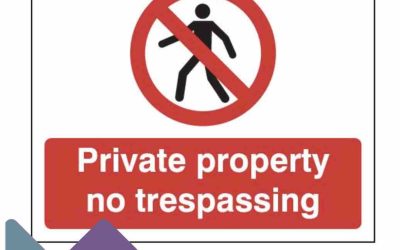Thank you for clicking on today’s Party Wall Surveying blog post. Today we are going to be looking at Party Wall Surveying procedures and the specifics and differences between an agreed surveyor and a two surveyor appointment.
This blog intends to address and answer this commonly asked question in a simple to read and easy to follow format. We hope you enjoy it!
Under the Party Wall etc Act 1996 if your neighbour wishes to carry out construction works to their property which is either
- Works directly to the party wall, a party structure or a party fence wall.
- Excavations within 3m or 6m of a neighbouring structure.
- Construction of new walls built up to or astride the boundary line.
Then they are required to serve a Party Wall Notice to you at least 1 or 2 months prior to the commencement of the works.
As the adjoining owner you are then able to respond to the notice with one of the following three options:
- Consent to the works
- Dissent and appoint Party Wall Surveyor
- Dissent and appoint Agreed Party Wall Surveyor
Of these three options you might notice that option two is very similar to option three, so what actually is the difference between and agreed surveyor and a two-surveyor appointment?
An Agreed Surveyor is appointed to act on behalf of both the adjoining owner and the building owner intending to carry out the works. It is important to note that the surveyor will act impartially and will not be biased towards either party.
The role of the Surveyor is to essentially act on behalf of the properties to ensure that the risk to these is kept to a minimum and that the correct Party Wall procedures are followed.
As an Agreed Surveyor, the surveyor will be responsible for the schedule of condition report for the adjoining owner’s property and they will also be responsible for drawing up and agreeing the Party Wall Award.
The option of an Agreed Surveyor is usually favoured by the Building Owner as this means that they are only liable for the costs of one surveyor rather than paying for their own surveyor as well as the adjoining owners surveyor.
Another benefit to this option is that it is usually a much smoother and quicker process to finalise the Party Wall Award allowing the building owner to carry out the works sooner.
Although this brings benefits to the building owner – due to the lower costs – under the Party Wall Act it is entirely up to the adjoining owner whether they wish to appoint an Agreed Surveyor or have a two-surveyor appointment.
One of the main reasons why adjoining owners decide to go with the option of agreeing two surveyors is because they believe the Agreed Surveyor will be bias towards the Building Owner as they are paying for the costs.
If the adjoining owner decides to dissent and appoint their own Surveyor – to represent their interests – the building owner will also appoint their own surveyor to act on their behalf.
Both surveyors will then collaborate to ensure that the correct procedures of the Party Wall Act are followed and the risks to the adjoining owner’s property are kept to a minimum. The surveyors from both parties will work together and negotiate to agree on the Party Wall Award.
Under the act the building owner is liable for the costs of both their own surveyor and the adjoining owner’s surveyor.
If you would like to discuss how Stokemont can be of assistance to you, feel free to get in touch of us today and our experienced and qualified party wall surveyors will be happy to give you 60 minutes of free impartial party wall surveying advice free of charge.




